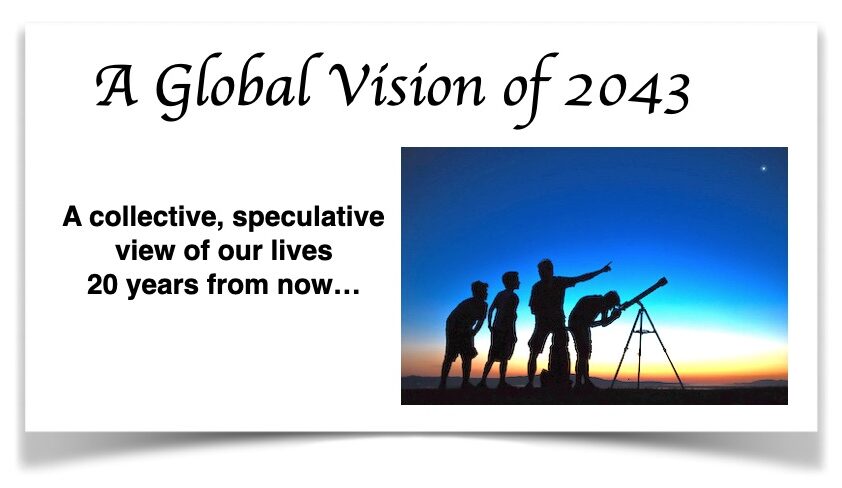Voices about the Future


Over June and July 2023, I took a journey with 200 people from around the world.
The pages here show what I heard from 200 people in the Future2043 survey. I asked people to answer 15 questions about their vision of the future 20 years from now and to share their comments.
The goal of the survey was to bring together ideas from around the world:
Graded answers were given for 15 different subjects, allowing measured analysis: better vs worse, this direction versus that direction, etc. Respondents also shared their thoughts about each question.
People responded from 33 different countries on six continents.
To simplify, after studying the data, the overall highlights can be broken into three categories:
There are nuances, crossovers among topics and many qualified answers of “yes…but” as well as “no…and”.
My goal here is not to write a definitive summary but to entice you to go further into investigating what the 200 voices around the world said, and to compare to your own views.
Many said that the only way change will happen is if there is a global upheaval or an earth-threatening disaster that forces change on us. The pandemic was not considered sufficient.
Respondents believe the youth of today will have a positive effect on many of our problems. They have different values and different visions of how they want to live.
Think about how you would answer these 15 questions and browse through the responses I have organized by question and theme.
You can request a copy of the full report by getting in touch with me directly. See Contact. Tell me why you’d like a copy. I’m curious!
Showing 4 of results
Showing 4 of results
Nothing matches your request, please try again with a different search term.
